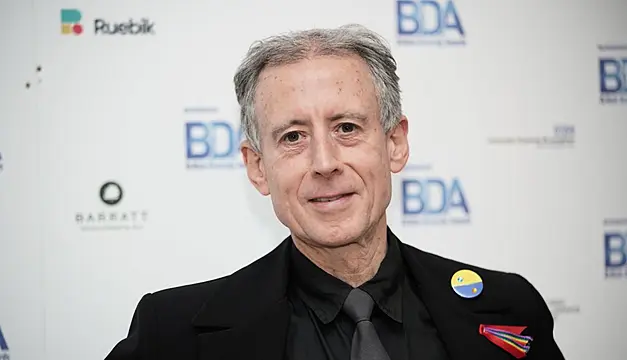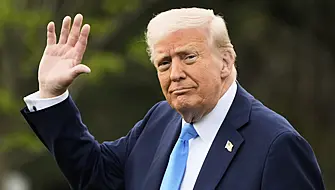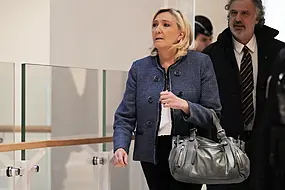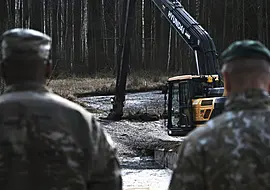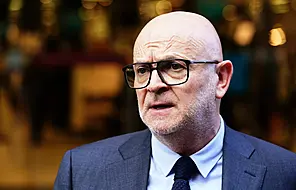Activist Peter Tatchell has said the main Pride event in London has become “too corporate and commercial” and has lost the human rights dimension.
Hundreds of thousands of people are expected to descend on the British capital on Saturday for the Pride parade which organisers say will feature more than 30,000 participants from all sections of the community.
The parade will pay homage to the 1972 march, passing significant sites from the UK’s first LGBT+ movement.
Campaigner Mr Tatchell was one of about 30 Gay Liberation Front (GLF) activists who organised the first UK Pride and he has marched in every Pride London parade since.
Speaking about Friday’s march, he told the PA news agency: “This march marks the historic 50th anniversary of the UK’s first ever Pride parade.
“Myself and other veterans of 1972 are here to say that we were there and we are still fighting for LGBT+ liberation in the UK and worldwide.

“It’s amazing to think that what began as one Pride parade in London in 1972, attended by only 700 people, has exploded this year into over 190 Pride events across the UK with a combined attendance of a million people.
“In the last five decades our movement has overturned all Britain’s anti-LGBT+ laws, some of which dated back centuries.”
In Ireland, Dublin Pride took place last weekend for the first time since the pandemic began with young people, LGBT+ support groups, Ukrainian nationals and the Taoiseach all participating.
The Dublin parade included more than 1,500 public servants from Government departments, An Garda Síochána, the HSE and various arms of the State under the banner Proud To Work For Ireland, more than doubling the 600 public servants who took part in the 2019 parade.
Speaking about the London event, Mr Tatchell said: “A lot of us are very concerned that the main official Pride event has become too corporate and commercial.
“It often looks like a huge PR, marketing and branding exercise by big companies. The human rights dimension has been lost. The original Pride was both a celebration and a protest.
“That’s the way it should be this year as well. We need to remember that there are still issues to fight for, particularly globally where 69 countries continue to criminalise same-sex relations – 12 Muslim majority countries still have the death penalty.”
He added: “The big corporations are the only ones that can afford big expensive floats, so they dominate the parade and overshadow the LGBT+ community groups.”
Mr Tatchell said his view of Pride is widely held, adding that there have been discussions with Pride organisers about doing it differently.
“But it hasn’t changed so far,” he said. “LGBT+ human rights has not been front and centre of Pride for many, many years. It’s turned into a huge street party and little more.”
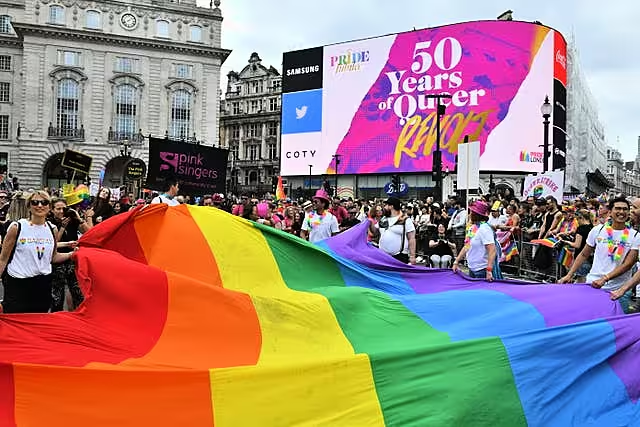
Mr Tatchell and the veterans of 1972 will lead the Pride parade on Saturday. Asked if he has considered boycotting the main parade, he said: “We feel it’s better that we’re there to raise LGBT+ human rights issues rather than stay away.”
Mr Tatchell said there has been huge progress in the last 50 years but that there is still more progress to be won.
“The [British] government promised to ban conversion therapy four years ago. We are still waiting. It’s now said that it will eventually ban this abhorrent practice, but it will not include protection for trans people.
“A conversion therapy ban that excludes our trans siblings is not a ban at all,” he said.
Pride in London said it has almost 600 groups marching in this year’s parade, and that the vast majority of them are grassroot organisations, non-profits and LGBT+ community groups.
Organisers said they look forward to welcoming the GLF at the front of the parade this year, to pay homage to the first protest in 1972 and to the veterans who paved the way for others.
All proceeds raised from commercial partnerships are reinvested into the LGBT+ community, organisers said.
